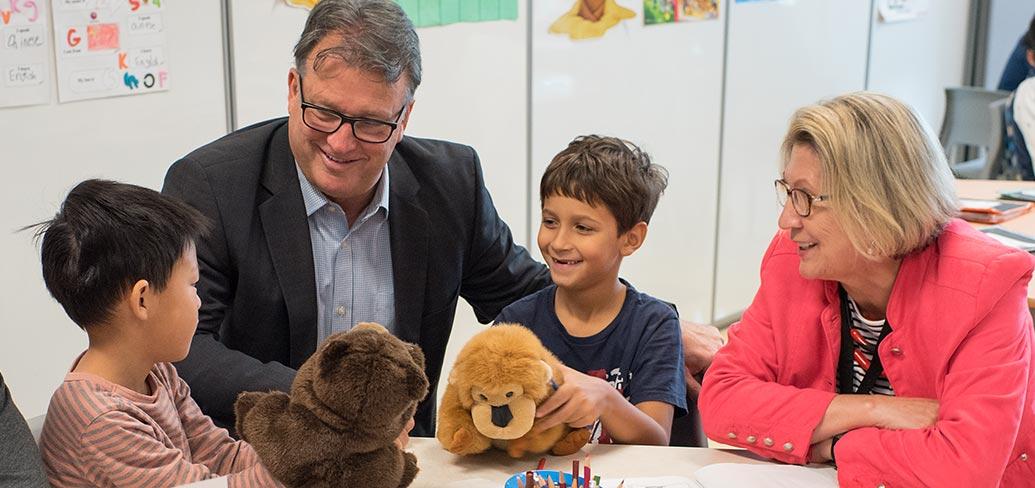Immigrant students getting help adjusting to Island schools

Supporting Island families -
A practical English language program is helping immigrant students adjust to life at their new Prince Edward Island schools.
More than 300 new immigrant students registered for Island schools between May and September 2017, the largest increase to date. This fall’s new Functional Language Program offers beginner-level English to these newcomer students in small groups, which helps them more easily integrate with their classes and peers.
“With population growth at record levels, our classrooms are becoming much more diverse,” said Education, Early Learning and Culture Minister Doug Currie. “Newcomer students are bringing the world to our education system and enhancing our students’ cultural experience. We are pleased that this new program is helping new language learners have a more successful transition into our schools.”
The Functional Language Program is being offered at the following schools, which are receiving a significant number of beginning language learners:
- Spring Park Elementary;
- Glen Stewart Primary;
- St. Jean Elementary;
- Stratford Elementary;
- West Royalty Elementary; and
- West Kent Elementary.
The program lasts between four and six weeks. It is taught to groups of up to eight students by teachers who travel between schools to support English as an Additional Language (EAL) students. Additional support is provided by youth service workers who help students transition into their new school.
EAL itinerant teachers spend the mornings working with students on functional English such as:
- basic conversations (“Help!, I don’t understand,” “Can you help me?”, “Show me where this is”, “Can I play with you?”, “I can’t find this”, “Can you repeat?”);
- school routines (what to do first thing in the morning, packing up at the end of the day, homework, lining up, and ordering lunch); and
- playground etiquette (turn taking, hands off, tied shoes, play safe, school boundaries, return inside when the bell rings).
The teachers determine if a student is ready to leave the program after four or six weeks, and sometimes earlier if the student is ready. Students can then enter the classroom for the full day, with language support by an itinerant teacher for 30 minutes each day.
Prince Edward Island's population continues to grow, with our province leading the Atlantic region for six of the past seven years. The Island's population growth has exceeded Canada as a whole for three of those six years.
Media contact:
Jean Doherty
Backgrounder
There are 1,870 newcomer students in Island schools for the 2017-18 school year, up from 820 in 2012-2013 and 367 in 2007-2008.
- Of the 1,870 English/French as an Additional Language students currently registered in Island schools, 213 have refugee status.
EAL/FAL students are supported in 43 schools by 25 itinerant teachers, five educational assistants, and two youth service workers.
In addition, there are 146 high school students taking dedicated EAL courses at Colonel Gray (85), Charlottetown Rural (43), Bluefield (10), TOSH (4) and Montague Regional (4).
More than 70 EAL students took summer school courses this year to improve their language skills and grades.